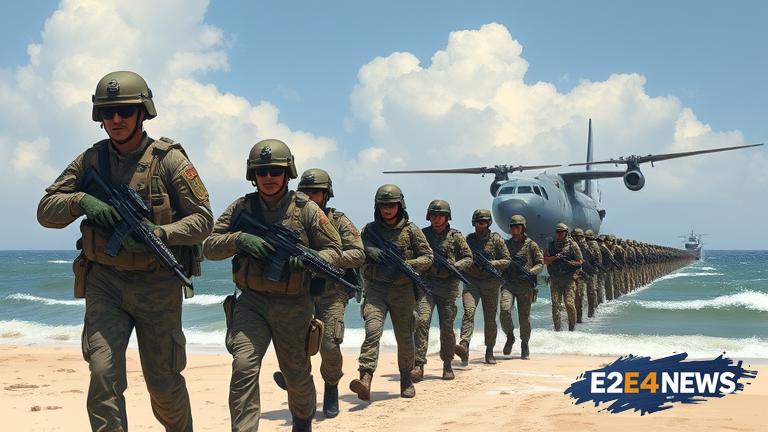In a recent development, the United States government has deployed around 200 Marines to the state of Florida. The primary objective of this deployment is to provide support to the Immigration and Customs Enforcement (ICE) agency in their efforts to crack down on immigration. This move is part of a broader strategy to enhance border security and enforce immigration laws. The Marines will be working closely with ICE officials to identify and apprehend individuals who are in the country illegally. The deployment is expected to last for several months, during which time the Marines will be providing operational support to ICE. This includes assisting with raids, arrests, and deportations. The decision to deploy Marines to Florida has been met with mixed reactions, with some praising the move as a necessary step to maintain national security, while others have expressed concerns about the potential impact on immigrant communities. The deployment is also seen as a reflection of the current administration’s tough stance on immigration. The Marines will be operating in various parts of the state, including major cities such as Miami and Tampa. They will be working to identify and target individuals who are suspected of being in the country without proper documentation. The operation is expected to involve a range of activities, including surveillance, raids, and arrests. The use of military personnel in immigration enforcement has raised questions about the role of the military in domestic law enforcement. Some have argued that the deployment of Marines to support ICE is an overreach of executive authority, while others see it as a necessary measure to address the complex issue of immigration. The situation is being closely monitored by human rights groups and immigrant advocacy organizations, who are concerned about the potential impact on vulnerable communities. As the operation unfolds, it is likely that there will be ongoing debates about the use of military personnel in immigration enforcement and the broader implications for national security and human rights. The deployment of Marines to Florida is part of a larger trend of increased militarization of the US-Mexico border, which has been a major focus of the current administration’s immigration policy. The use of military personnel in immigration enforcement has been criticized by some as a form of ‘militarized’ immigration policy, which they argue is disproportionate and potentially harmful to immigrant communities. Despite these concerns, the deployment of Marines to Florida is likely to continue, at least in the short term, as the US government seeks to maintain its tough stance on immigration. The situation will likely be subject to ongoing scrutiny and debate, as the US continues to grapple with the complex and often contentious issue of immigration.
